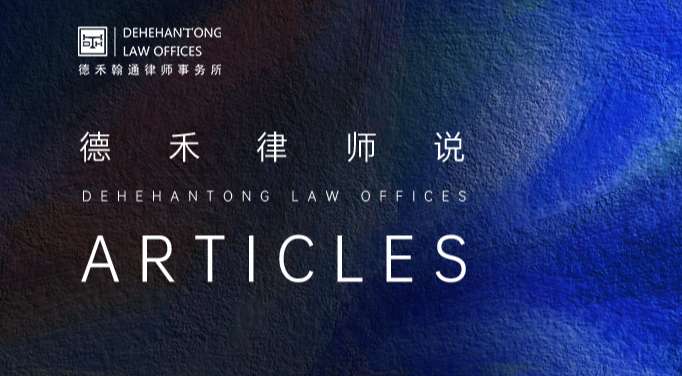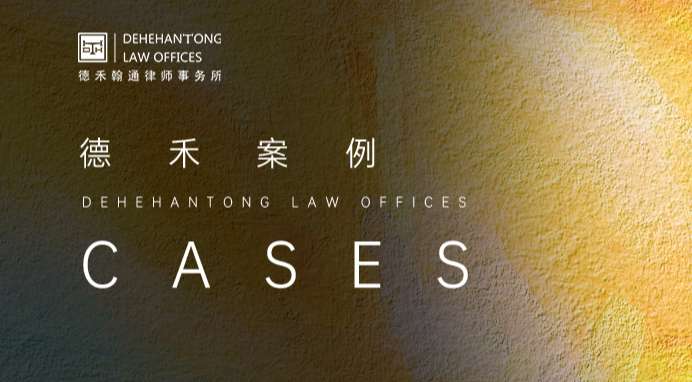The Legal Dilemma and Solutions of Zong Qinghou's Inheritance Storm and the Inheritance of Entrepreneurs' Wealth
On February 25, 2024, Zong Qinghou, the founder of Wahaha Group, passed away, leaving behind an asset portfolio valued at over 10 billion yuan. After that, Zong Fuli, the only daughter of Zong Qinghou, took over the business empire left by her father. According to business information, on August 29, 2024, Zong Fuli succeeded Zong Qinghou as the new shareholder of Hangzhou Wahaha Group Co., LTD., holding 29.4% of the shares.
Recently, three foreigners who claim to be the "half-brother" and "half-sister" of Zong Fuli have filed lawsuits in courts in Hong Kong and Hangzhou. The core of the dispute in this inheritance battle lies in a trust asset worth as much as 2.1 billion US dollars and the inheritance rights of the 29.4% equity stake held by Zong Qinghou in Wahaha Group during his lifetime. The three foreigners now claim that Zong Qinghou had set up a trust at HSBC in Hong Kong and promised each of them 700 million US dollars. However, Zong Fuli submitted a copy of the will signed by Zong Qinghou in 2020, which clearly stated that all his assets abroad would be inherited by Zong Fuli. This inheritance battle immediately drew social attention. This entrepreneur, who created a business legend with a bottle of pure water, eventually pushed his family into a very complex inheritance vortex in the history of Chinese enterprises.
01 The dual predicament caused by lawsuits in two places
At present, the lawsuits in the courts of Hong Kong and Hangzhou have not yet been concluded. No matter what the outcome is, it may have a huge impact on the wealth left by Zong Qinghou. If the 2.1 billion US dollars trust is recognized as valid by the Hong Kong court, the existing 1.8 billion US dollars of assets are highly likely to be redistributed. If the Hangzhou court rules that the three foreigners have the right of inheritance of equity, the equity structure and even the control rights of Wahaha Group Company may undergo major changes.
02 A will is a powerful firewall for the inheritance of wealth
(1) Making a will is beneficial for the inheritance of wealth
The Tsinghua PBC School Global Family Business Research Center pointed out that among the over 47 million private enterprises in China, more than half, that is, nearly 28 million, may die out in the process of wealth succession. Behind too many battles over entrepreneurs' estates lies the absence of wills. Countless cases have proved that wills are undoubtedly the firewall for wealth inheritance.
The advantage of a will lies in its ability to clearly define the testator's intention for the distribution of the estate and avoid possible disputes in statutory inheritance. In the absence of a will, legal heirs may have conflicts over uneven distribution of the estate and end up in court, which could seriously affect the stable operation of the enterprise. A legal and valid will can clearly specify the ownership of the estate and reduce misunderstandings and conflicts among the heirs. In addition, a will can plan the way an estate is passed down, ensuring that wealth flows to specific heirs or legatees as the testator wishes.
(2) Choose the form of making a will carefully
According to media reports, during the defense process, Zong Fuli submitted a will of Zong Qinghou, but the specific form of the will is unknown. According to the provisions of the Civil Code, the formal requirements of different types of wills vary. If Zong Qinghou's will is a self-written will, he must personally write the full text of the will and sign it, indicating the year, month and day. If Zong Qinghou's will is a dictated will, it must be witnessed by two or more witnesses, with one of them drafting it on his behalf. The will should be signed by Zong Qinghou, the scribe and the other witnesses, and the year, month and day should be noted. If Zong Qinghou's will is a printed one, there must be two or more witnesses present to witness it. Zong Qinghou and the witnesses should sign each page of the will and indicate the year, month and day.
If a will does not meet the above formal requirements, there is a risk that it will be deemed invalid. There are also requirements for witnesses. A witness cannot be an heir or have an interest in the estate; otherwise, the will will also be deemed invalid. If the will is invalid, the estate will be handled in accordance with the legal inheritance, and the entrepreneur's hard-earned empire will once again face the test of an inheritance battle. It is reported that when Zong Qinghou made his will, two company executives were present. If these two executives have no interest in the estate, it will not affect the validity of the will. Considering the validity of the will, we still suggest that entrepreneurs give priority to making a notarized will.
(3) The complexity of cross-border inheritance
In cross-border inheritance of estates, the application of law is more complex. According to the provisions of the Law on the Application of Laws to Foreign-related Civil Relations, the effect of a will shall be governed by the law of the testator's habitual residence or the law of the country of nationality at the time of making the will or at the time of death. There are differences in the legal systems regarding the form and validity of wills among different countries or regions. When distributing an estate, it may also be subject to the laws of the place where the estate is located. Therefore, we suggest that entrepreneurs make a comprehensive plan for the arrangement of their wills, taking into account the type of assets, the location of the assets and the intention to pass them on, and draw up a will with the help of a professional lawyer.
03 Make good use of family trusts to pass on wealth
(1) The inheritance advantages of family trusts
A family trust refers to a trust business where a trust company accepts the entrustment of a single individual or family, with the main trust purpose of protecting, inheriting and managing family wealth, and provides customized affairs management and financial services such as property planning, risk isolation, asset allocation, children's education, family governance, and public welfare (charity) undertakings.
The advantages of a family trust:
1. Independence: The assets in a family trust account are independent of the personal assets of the settlor and those of the trustee, meeting the independence requirements of asset isolation and achieving a better role in protecting asset risks.
2. Flexibility: The client can design different distribution plans and formulate corresponding distribution terms based on their own will and inheritance needs, such as educational fund terms, wedding expense terms, anti-extravagance terms, and entrepreneurship support terms, etc., allowing the family wealth to be passed on to future generations in accordance with the client's will.
(2) The inheritance problems left by Zong Qinghou
Judging from the media reports, Zong Qinghou had considered using the family trust as a tool for inheritance when distributing the wealth rights of his children, but the implementation effect was not satisfactory. Now, the side of Zong Fuli and the side of the three foreigners have different opinions. The nature of the funds in the HSBC Bank account is still unclear. If it is a trust asset and the beneficiaries are the three foreigners, then Zong Fuli has no right to transfer funds from the trust account to pay the balance for overseas business expansion. If it does not belong to the trust assets, then the 700 million US dollars of wealth guarantee promised by Zong Qinghou to each of the three foreigners before his death will eventually come to nothing.
(3) Successful family trust cases
To ensure the long-term prosperity of the family business, many entrepreneurs manage their family wealth through family trusts.
Li Ka-shing has established a complex family trust structure by setting up four private trust companies. At least four trust funds hold shares in their respective companies and have designated beneficiaries. Among them, The Li Ka-Shing Unity Discretionary Trust (DT1) and another discretionary trust (DT2) form the basis of Cheung Kong Holdings' structure. Through the design of multiple layers of trusts and holding companies, Li Ka-shing has achieved effective control over the family business and wealth succession. This structure not only ensures the stable inheritance of family wealth but also guarantees the beneficial rights of family members through trust terms, avoiding potential inheritance disputes.
Entrepreneurs also choose family trusts to avoid the disintegration of their businesses due to divorce.
Before Longfor Properties went public in 2008, Wu Yajun and CAI Kui, the founders of Longfor Properties, each established a family trust through HSBC International Trust and transferred the company's equity to each of them. They first registered an offshore company in the Cayman Islands and then injected the equity into the trust structure through a series of equity transfer operations. This design played a crucial role when Wu Yajun divorced in 2012. The company's valuation was not significantly affected by the divorce, ensuring the consistency of the actions of the two major shareholders and setting a model for Chinese family businesses to handle similar events through trusts.
04 Protective barriers at the corporate governance level
(1) The inheritance rights of children born out of wedlock are protected by law
In terms of inheritance rights, non-marital children do indeed have exactly the same legal status as marital children. If these three foreigners submit evidence to prove that they are indeed the children of Zong Qinghou, they have the right to claim inheritance of Zong Qinghou's estate. Although Zong Fuli has become a 29.4% shareholder of Wahaha Group Company through industrial and commercial changes (the value of this part of the equity has exceeded 20 billion yuan based on the current market value), if she does not obtain the equity through testament inheritance, the equity share under her name will be broken through by the legal inheritance rights of other children. If the three foreigners win the case in the Hangzhou court, it may trigger changes in the equity structure, which in turn will affect the operation of Wahaha Group Company.
(2) Skillful use of the company's articles of association
When it comes to the arrangement of the inheritance of company equity, we suggest that entrepreneurs, based on the inheritance plan, make corresponding special agreements in the company's articles of association in advance regarding the inheritance qualifications of shareholders and the preemptive rights of other shareholders. The best approach is a dual combination of "notarized will + articles of association".
05 The warning role of Wahaha's Succession Battle
(1) Improve wills and trust arrangements
According to media reports, there were loopholes in the form and content of Zong Qinghou's will and trust arrangements during his lifetime, which triggered the current inheritance controversy. We suggest that entrepreneurs, with the assistance of professional lawyers, refine their wills and trust documents to ensure they comply with legal requirements, clarify the estate distribution plan, and avoid disputes caused by the ambiguity of wills or trusts.
(2) Strengthen corporate governance and equity planning
Enterprises should improve their articles of association, clarify the rules for equity inheritance, and avoid the impact on the corporate governance structure due to equity inheritance issues. We suggest that entrepreneurs, under the guidance of professional lawyers, sort out the equity structure of their enterprises, strengthen corporate governance, and contribute to the long-term stable development of their enterprises.
The dispute over the succession of Wahaha reflects many challenges that enterprises face in terms of wealth inheritance and corporate governance. This incident reminds numerous Chinese enterprises that at the time of generational transition, they need to pay more attention to the early planning and institutional construction at the legal level. Under the framework of legality and compliance, a clear and transparent inheritance mechanism should be established, and communication and collaboration among family members should be strengthened. Only in this way can the stable development of the enterprise be guaranteed while achieving the orderly inheritance and long-term continuation of family wealth.















